
Peter Igho
Well, the truth of the matter is that first, I am a very restless person who cannot sit in one place for a long time. I mean if I go to a party, most of the time, my friends would say I am too restless. I want to make sure everything is working. Maybe it is the producer in me that wants to make sure that everything is working well even if it is not my party. With most of my friends, if I go to their party, no matter how small, I take over as MC and I go round to make sure everybody is eating, everybody is okay. So, I am restless. But most importantly, I believe that he who rests rusts.
I also play golf four times a week: Tuesdays, Wednesdays, Thursdays and Saturdays. During the week, I play nine holes. That way, I keep fit. But it is not just the physical activities but also meeting people. When you are out there, you are breathing in fresh air. That clears the cobwebs. I believe that is practically why I am still moving when all my friends are practically aided by walking sticks. I thank God for that.
The name Peter Igho is legendary due to the role you played as a producer during probably the best period of television drama in Nigeria. Many refer to this period as the golden age, which spanns the 1980s and the early 1990s. Did you plan it or it just happened by chance?
This question takes us way back, because I was born in Jos. My father was a tin miner. Growing up in Jos helped to make me who I am. First we lived in various camps where my father was mining. But then while in Jos town, I recall that growing up, I attended St. Theresas Catholic Primary School. The compound where we stayed had about eight families, and we were the only non-Igbo in the compound. So, I didnt learn Igbo; I grew up speaking Igbo. And because in Jos, the language of communication was mostly Hausa in the market and all that, most of my teachers in primary school were also Igbo. Even today, when most people hear me speak Igbo, they wonder how manage. It was not from staying in the East but from Jos.
Jos was so cosmopolitan at that time, so you grew up speaking your language. In fact, it was my language (Urhobo) I learnt, because most times, when our parents spoke to us, we answered in Igbo or Hausa. They would say, come on, we are talking to you and you are speaking another language. So they forced us to learn to speak our language.
Read Also: LCCI knocks Labour over nationwide protest
Most importantly, because the mining business was not that flourishing all the time, the vicissitudes of the mining thing affected our fathers financial standing. So, most of the time, when we came back from school, we helped to hawk whatsoever was in season, whether it was groundnuts, boiled eggs, and all the seasonal produce. The most common was the seasonal guinea fowl eggs. Those days, there were no chicken eggs. Chickens were available only when you had local chickens in your compound and they laid eggs. The eggs you bought in the market were the guinea fowl eggs. My mother would buy them and we would go hawking them after school.
Because in Jos there were cinema houses, in the morning, afternoon and in the evenings, we invariably ended up at the cinema. It was quite problematic because we got hooked with the cinema. Even as young children, we understood, especially myself, the language of the movies. Even adults would pay for us sometimes when we didnt have the money to enter, so we could explain to them what was going, because at that time, most of the English films were the Tarzan and Davy Crockett series. The others were Indian films. The Chinese films came later, and most of them were not with sub-titles. I understood enough of what was happening to be able to tell that the actor is saying this or that.
That also helped because even now, at every opportunity, my grandchildren would say tell us a story, and I love doing that.
So, it came from my father also. There was this Hausa book, Magana Jari Ce. I was a pioneer staff of NTV Sokoto. We started doing plays. The studios were stores converted to studios with very low roofs. And there was not much proper lighting. Again, we had to improvise a number of things. That time, the cameras available were big cameras in the studios. At that time, there was no camera to be used to shoot outside. Only the film camera they used for collecting little, little clips for news. That was why at that time, drama series were all studio based “ the Village Headmaster, Samanja, and Masquerade. So, there were efforts in Winds Against My Soul, For Better for Worse, all studio based programmes.
So, we too started and I was in charge of Hausa and English language drama every week live. There were no recording facilities to record and go and edit. There was no margin for error. We had to rehearse and rehearse to make sure that we were meticulous in our planning. Then in 1977, the Nigerian Television Authority (NTA) came under one umbrella and NTV Sokoto became NTA. So it was the next year, 1978, that NTA wanted to showcase its oneness. Before then, we borrowed some programmes like Village Headmaster to show. That is why even though there was no network, we knew Village Headmaster, we knew Samanja, Masquerade and so on. They sent the tapes for variety.
How did the popular Cock Crow at Dawn series come about?
When NTA came under one umbrella, to showcase their oneness, they organised a drama competition among the 12 NTA stations. I wrote and directed the entry from NTA Sokoto. It was called Moments of Truth. To cut the long story short, when the plays were adjudicated, my play, Moment of Truth, came first. Because my play came first, the next year, when NTA saw government endeavor in agriculture, and they saw how popular that drama competition was, NTA decided to support governments agricultural endeavour with drama series. Because I produced the winning entry during that competition, I was transferred from Sokoto to Lagos to work and produce the series that was to be produced to promote governments endeavour in agriculture. That was what became Cock Crow at Dawn.
Despite being relocated to Lagos for Cock Crow at Dawn, we saw you moving to set in Jos, bringing together some of the best actors in Nigeria from different regions. Could you talk about the mindset for that, because many will see the Cock Crow at Dawn as the real dawn of television drama series in the country, which later transformed to Nollywood? I was progressing with that story. When I was moved to Lagos to produce what became Cock Crow at Dawn, we had done something beyond winning that drama competition. Because part of what made us to win with Moment of Truth was the fact that in that production, unlike all the studio based dramas that we were used to seeing, suddenly, here was a production that took you out of the studio.
So, it was a pioneering effort?
I am reputed to have taken drama out of the studios to locations.
In Nigeria?
Yes. I told you our studios were not properly television studios. It was a converted warehouse. So, we had to improvise. While working in the confines of that studio, but having grown up in the cinemas where most of it were outdoors, I wanted to do the same.
TV22
So in terms of television technology and production, Nigeria was far behind?
Even worldwide, the mobile camera that became what we are using now, were still to come. It was still cine-camera where you had to shoot on film and process.Because it was so expensive, only the news people used a bit of it “ two seconds, five seconds, one minute “ and incorporate as news insert. It was when I started in Sokoto that I started using their camera to go and shoot sequence outside, bring there and incorporate into my own drama. So the moment she screamed ˜the baby is dead, I didnt even show her, I just went straight to the outside of the house and there was a heavy storm, heavy rain, lightning and thunder. Then we see the husband inside running around looking for his wife because he knows she is in pain. ˜I cant find her inside. Then he comes outside looking for her. He finds her in the garden. The woman is just there in the rain and you cant even tell her tears from the rain. So, he runs to her, picks her up, and as he is taking her back, I put Bongos Ikwues music Whats Gonna be, Gona be¦ And at that point, everybody breaks down. Now this was a sequence outside.So that was a major departure, something that people had never seen before in television in Nigeria.
So, when I came to Lagos to the project, I realised two things. I didnt want something that would be regional. I didnt want it to be an Igbo, Hausa or Yoruba drama. I wanted a drama that Nigerians everywhere would identify with. So, even in the choice of the names. I was very careful. Even Bello, we said Bellos are in the North, Bellos are in the South. Then Gaga, Gaga is Urhobo. I have a cousin who is Gaga. Ene was one of my staff, Ene Oloja. She is Idoma, but Ene can come from anywhere. So, I took my time over those names.
Again, in choosing the actors, I said I have to be very sure that I get a team. I didnt want too many of the old names. I wanted something fresh, but you needed to bring in one or two that were already established and all that. I mean I had to think about Kasimu Yaro (Uncle Gaga) the wicked uncle. Bitrus, the late Sadiq Daba, was with me in Sokoto. He was the doctor in Moment of Truth. We worked together in Sokoto. So, when I was casting for the Bello family, I started with him. I now had to find somebody who looked like his father and somebody who looked like his mother. It actually started with him. It was easier with him.
In Jos, the guy who played Bello, George Menta, is Urhobo, but he also grew up in the North. His father was one of the richest tin miners. The moment you saw him, you saw Bitrus. The person that was difficult to find was Zamai, the wife of Bello and the mother of Bitrus and Larai. Larai was also with me in Sokoto for the ˜Moment of Truth. She acted the wife who lost her baby. So, she and Sadiq, who became brother and sister, were with me in Sokoto. So, it was the father and mother that we had to get from outside.
Getting Zamai was difficult. It took a long time. But that is a long story. We finally got her. The irony was that Larai the daughter and Bitrus the son were older than Zamai, Ene Oloja in real life. So, it became the sheer brilliance of Ene Olojas acting to be able to depict their mother and do it very well and convincingly. I took my my time to get the cast.
Cock Crow at Dawn became a kind of watershed in Nigerian television¦
It is because Cock Crow at Dawn became such a humongous success because it broke grounds in many ways. It was the first ever drama series in this country shot entirely on location. Before then, everybody was under the safety and comfort of the studio. This was the first time we were exposing a whole series to working outside the studio, where you are fighting with nature, the elements and all that. You are exposed to the sun and weather; no air conditioner. It was difficult, it was painstaking, it was a very tough assignment. But, again, it paid off in the end because all the efforts we put into it made it a big success. It is the first ever series with its own dedicated equipment. Before then, in all the studio programmes, when you wanted to go and shoot, you would book for camera and so on. This one, we had our own dedicated facilities. We commissioned music, Bongos Ikwue¦
The Cock Crow at dawn song, was it commissioned? Two, what do you have with Bongos Ikwue? You used his music also for Moment of Truth (What Gonna be, Gonna Be)?
You know, the time I took to select the cast, the same time I also took to select the crew. Also, the same I also used to ensure that I got the right music. You mentioned Moment of Truth. Growing up in Kaduna during my secondary school, I was a day student most of the time, from form One to form five. I became a boarder only the last term of my fifth year. In those days, there was one voice you heard regularly on radio, that was Bongos Ikwues. So, all of us knew Bongos Ikwue. He had a group called the Rooftopers, because he was performing at a place called Hamdala Hotel. So, they were called Bongos Ikwue and the Rooftopers. Outside that he was performing there, you would always hear his voice on radio alone, singing and performing. We knew all his songs and all that. That was why when I was doing Moment of Truth in Sokoto and I needed the music that would help capture the emotions that I wanted, my mind went to him, because Bongos Ikwue is a great story teller in his songs. He also has this voice that touches you and pulls the strings of your heart. So when this series came, and I knew I needed somebody who would give me the kind of song that I wanted, my mind of course went straight to Bongos Ikwue.
With Bongos Ikwue, I had no doubt. First I had met a number of musicians and I knew many of them. Many of them, if you called them, like many Nigerians do, the first question would be how much are you going to pay? Bongos Ikwue doesnt even talk about money.
Are you saying before he started the job he never asked you how much you were going to pay?
No, no. All he needed to know was that what was it all about and why do you think that I can do it? For him the art was much more than the money you are going to pay. And that was why he did what he did. He sought perfection. He went back and thought about it, and came up with something that was good. Everything that went into Cock Crow at dawn was properly planned and executed; nothing by accident.
Why Jos?
Jos because I was born in Jos and I understood the terrain more than anywhere else. In fact, when they gave me the assignment, it was to do it in Lagos. And I said how do I shoot an agricultural programme in Lagos? First, to get your artistes from various locations to come to your set because of the traffic jam and all that, it would be hell on earth, and there would be no beauty to show. But I grew up in Jos, I was born in Jos. I knew the rolling hills, the beautiful waterfalls, and all the rest of them. So, going back to Jos was for me like voyage of rediscovery. I also had an incredible camera man.
Why did the 1980s and 1990s when you were in charge of the production of some of these iconic drama series become a kind of bench mark up till today in terms of storytelling, quality of production and the calibre of artistes? They did not just fade off with these programmes but were the fulcrum of what became Nollywood. Why was this period like the golden age?
It was indeed the golden age of broadcasting in Nigeria. There are so many reasons¦ Because Cock Crow at Dawn wasnt an isolated thing.
Let me give you a little background. It was a deliberate act. Up till the point when Cock Crow at Dawn came, stations had their budgets for the little dramas that they did, like Village Headmaster, Samanja, and so on. But the rest were all there “ cooking time, childrens time, and all those programmes. After the success of the drama competition of 1978 where Moment of Truth came first, NTA at the management level decided that we would not have a big reputation if we continued with just everyday programming. There was a term they called it then: perishable programmes, programmes that you could wipe off. At cooking time, they cook Ogbono soup, Egusi soup, then in another one, you cook ˜Tuwo Da Miyan Kuka and all that, or ˜Ofe Nsala and ˜Onugbu soup. Those are not high profile programming. So, NTAs management decided at that time that every year, they would invest resources and facilities to produce at least one major programme that would stand the test of time.
Dont forget, from that 1977 when NTA took over from the various stations little inputs, NTA wanted to show itself as the giant that it was, not only in name but also in the content that it produced. So they started what they called programme projects. The first programme project was a documentary series shot by Eddie Iro. Before the drama competition of 1978, they had done a documentary competition and Soji Oyisan and Eddie Iro, especially Soji Oyisans production, I think his programme won, and they decided to do a documentary series. They gave them a camera and I think they travelled to the Gambia. I think they did about four-five episodes and they couldnt continue for so many reasons.
Cock Crow at Dawn was the Project 2. In those projects, NTA said they would now invest proper funding, proper facilities to ensure that the programmes go above others.
So, Cock Crow at Dawn was the first drama series that we saw its own dedicated equipment. I recall that when I was about to go, they gave me a cheque for N17,000 to buy vehicles for Cock Crow. I bought two brand new station wagons and a saloon car at that time.We were running a station outside the station. (The Nation)




















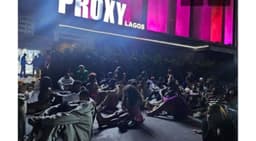
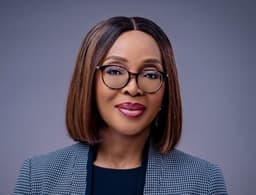
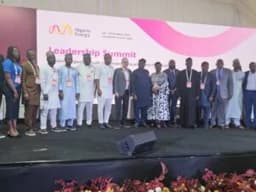
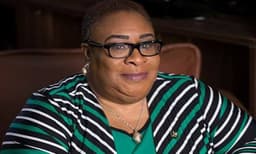
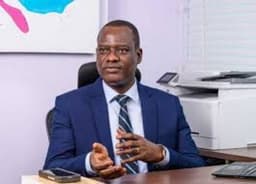


NEWS EXPRESS is Nigeria’s leading online newspaper. Published by Africa’s international award-winning journalist, Mr. Isaac Umunna, NEWS EXPRESS is Nigeria’s first truly professional online daily newspaper. It is published from Lagos, Nigeria’s economic and media hub, and has a provision for occasional special print editions. Thanks to our vast network of sources and dedicated team of professional journalists and contributors spread across Nigeria and overseas, NEWS EXPRESS has become synonymous with newsbreaks and exclusive stories from around the world.